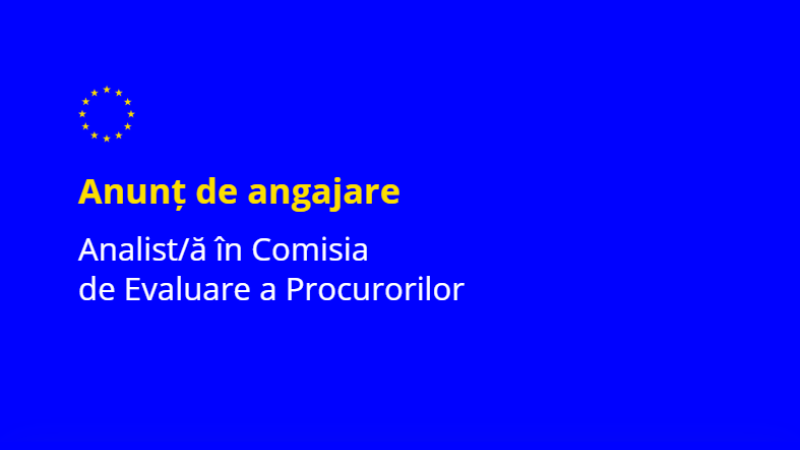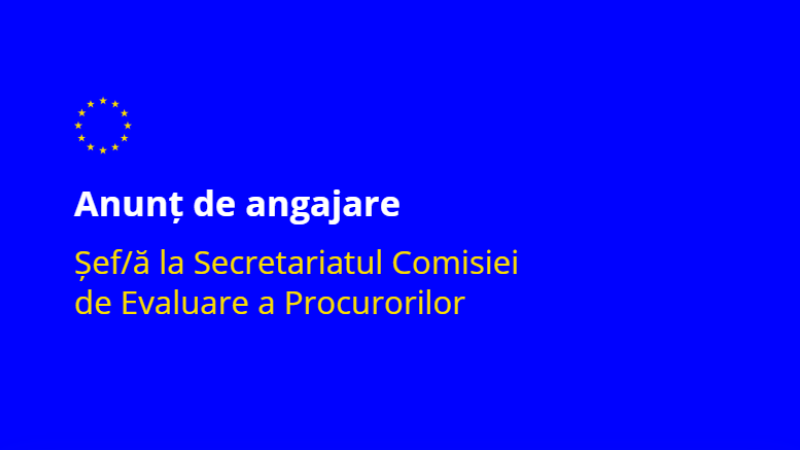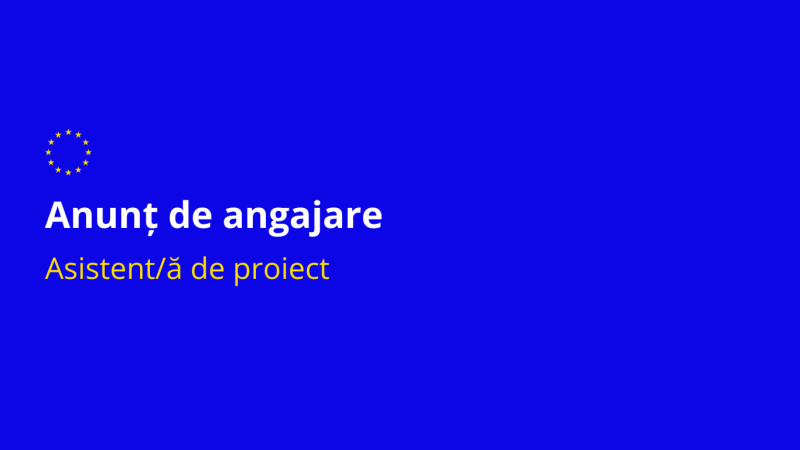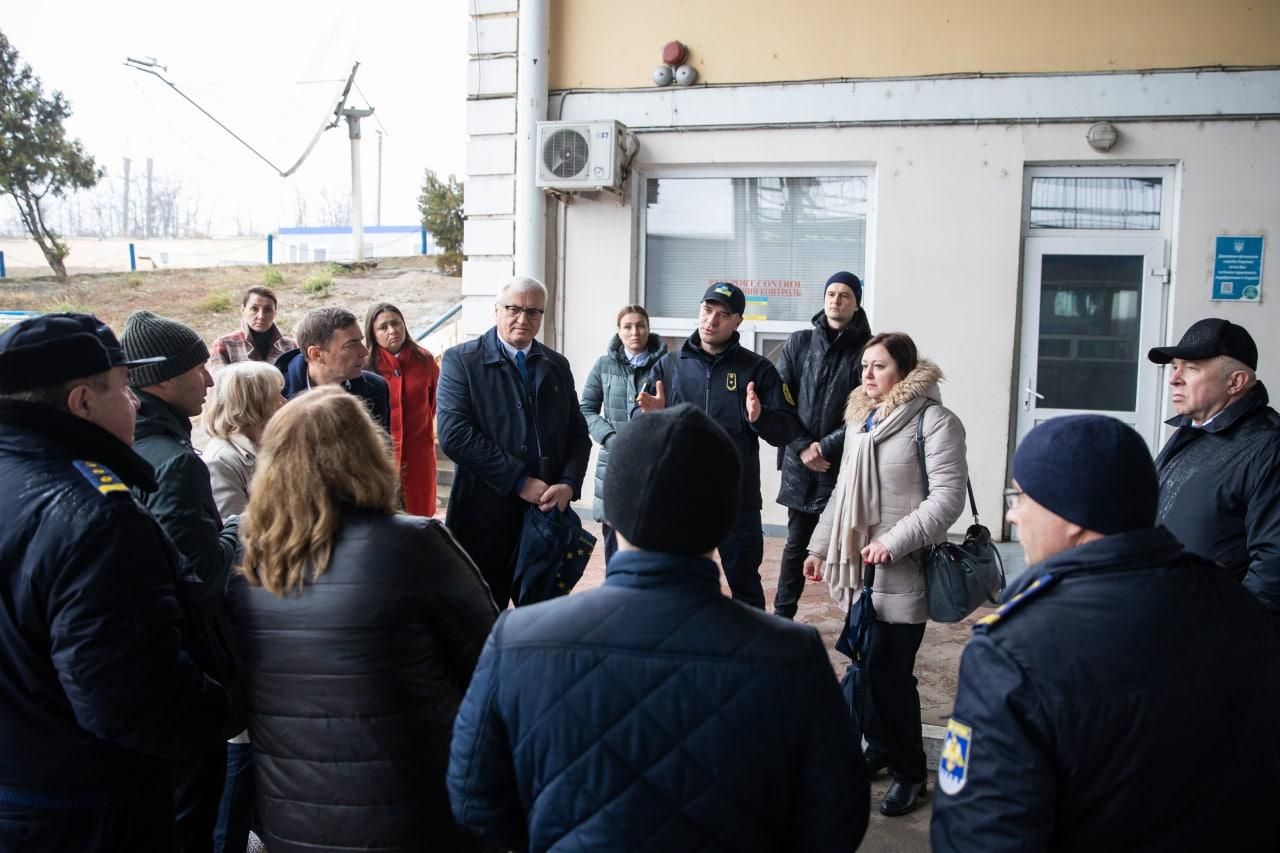
EUBAM și autoritățile vamale din Moldova, România și Ucraina își unesc eforturile pentru a gestiona situația de urgență și a atenua presiunea în zona de frontieră Reni-Giurgiulești-Galați
Sub auspiciile Misiunii Uniunii Europene de Asistență la Frontieră în Moldova și Ucraina (EUBAM), reuniunea trilaterală organizată la Giurgiulești reunește autoritățile vamale din Moldova, România și Ucraina pentru a îmbunătăți reacția la situațiile de urgență apărute și a optimiza fluxul de mărfuri în zona Reni-Giurgiulești- Galați.
Una dintre rutele esențiale din Ucraina către UE trece prin Republica Moldova (Giurgiulești-Reni) și mai departe spre România (Giurgiulești-Galați). Odată cu declanșarea războiului rus de agresiune și blocarea coridoarelor de transport maritim, traseele din sud sunt esențiale pentru economia Ucrainei, atât în ceea ce privește exportul de produse agricole, cât și importul necesar de combustibil și ajutor umanitar. Acum, odată cu intensificarea atacurilor rusești aleatorii cu rachete asupra infrastructurii critice ucrainene, frontierele dintre aceste trei țări au devenit și mai aglomerate, astfel poate dura mai mult de o săptămână pentru ca un camion să ajungă din Ucraina în România prin Republica Moldova.
Din aceste considerente, pe 8 decembrie 2022, în Giurgiulești (Republica Moldova), EUBAM a convocat o ședință de lucru, cu participarea conducerii autorităților vamale regionale din Republica Moldova, România și Ucraina. Participanții au examinat situația actuală la frontierele dintre cele trei țări în triunghiul Reni- Giurgiulești-Galați, căutând soluții practice pentru atenuarea presiunii asupra infrastructurii de frontieră supraîncărcate.
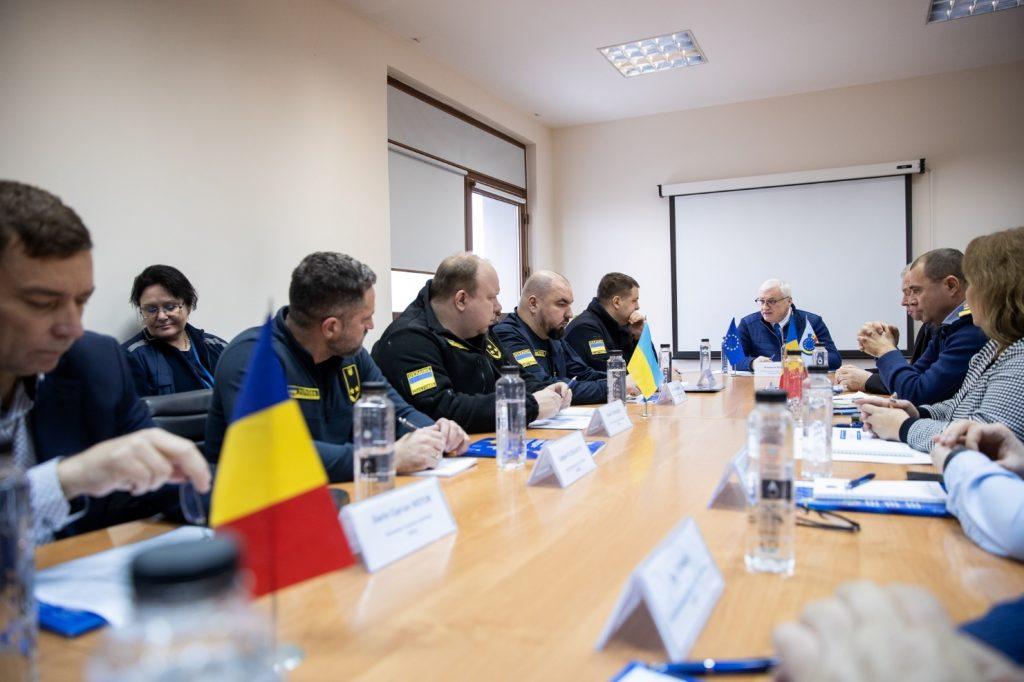
În cadrul întrevederii, părțile au discutat posibilele modalități de optimizare a procedurilor de urgență pentru o mai bună gestionare a traficului de mărfuri în caz de cădere de curent. Părțile au remarcat importanța livrării de generatoare noi, combustibil și sisteme cu sursă neîntreruptă de alimentare cu energie electrică pentru punctele de trecere a frontierei din zona Reni-Giurgiulești-Galați. În același timp, reprezentanții celor trei autorități vamale au explorat posibilitățile de a optimiza traficul de mărfuri. Părțile au elucidat posibilitatea redirecționării camioanelor către punctele de trecere a frontierei care sunt mai puțin aglomerate și de a revitaliza activitatea punctelor suplimentare de trecere ale frontierei în vecinătatea segmentului Giurgiulești-Reni.
În cadrul discuțiilor privind situația actuală la nivel strategic, participanții au evidențiat necesitatea deschiderii rapide a conexiunii feroviare Basarabeasca-Berezino, care va permite transportul zilnic a peste zece mii de tone de marfă, reducând astfel semnificativ traficul de la PTF-urile rutiere moldo-ucrainene. Părțile au subliniat, de asemenea, importanța utilizării mai vaste a NCTS în scopul eficientizării fluxului de mărfuri și sporirea gradului de conștientizare a mediului de afaceri ucrainean pentru utilizarea mai activă a acestuia. La final, părțile au convenit să coordoneze acțiuni comune și să continue cooperarea în gestionarea situațiilor de urgență cauzate de atacurile rusești aleatorii cu rachete.
